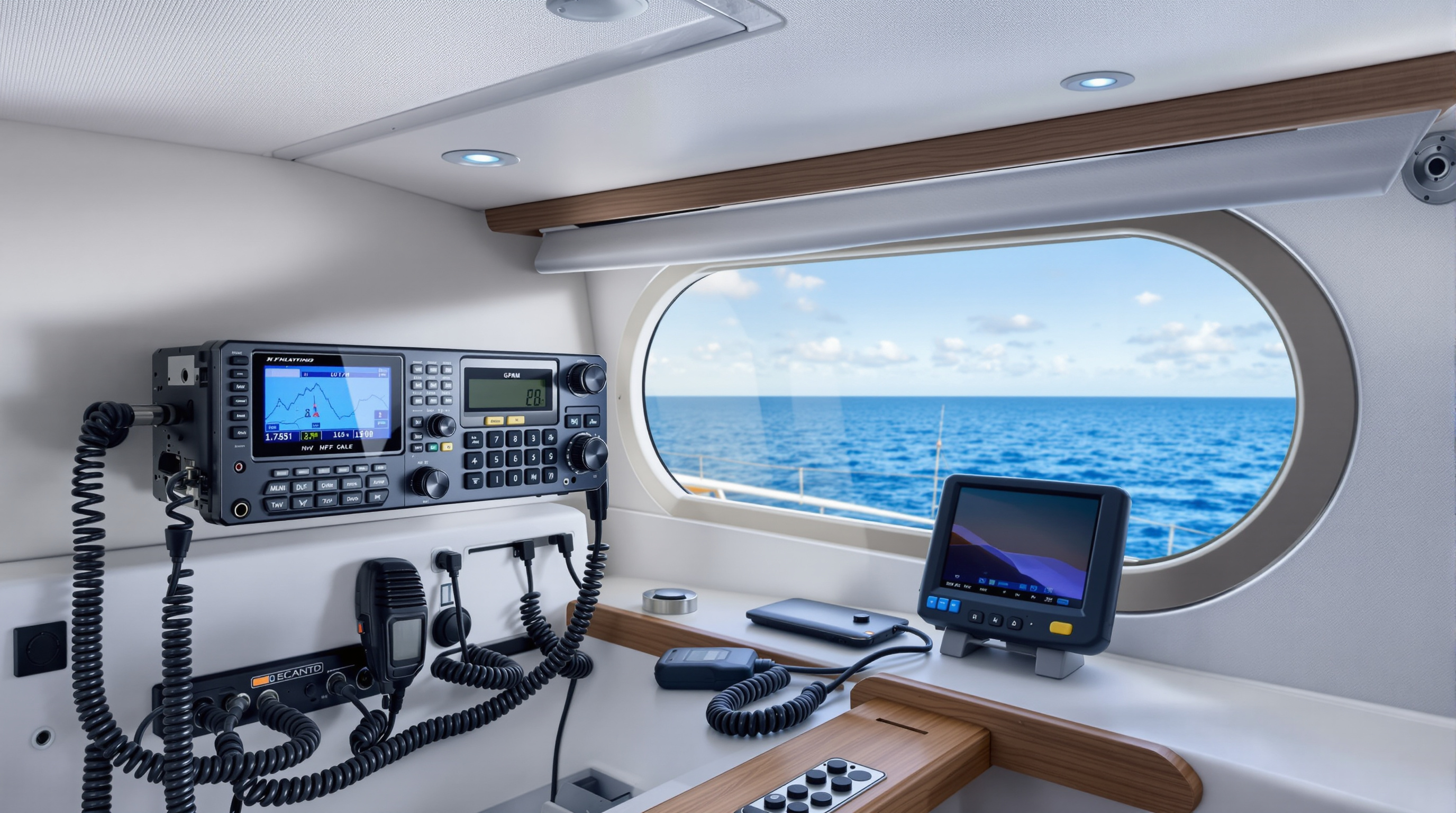Getting on the Roll Call
Participating in the Pacific Seafarer's Net daily roll call provides vessels at sea with essential communication services, position reporting, message handling, and emergency support. Proper preparation ensures smooth participation and reliable communication throughout your ocean passage.
Pre-Departure Preparation

Successful participation begins well before your departure. Taking time to prepare your vessel's radio station, understand net procedures, and register with net control operators establishes the foundation for reliable communication at sea.
Amateur Radio License Requirements
Operators must hold valid amateur radio licenses with privileges for the HF bands used by the network, typically 14 MHz and 21 MHz. In the United States, this requires a General or Extra class license. International vessels should ensure their licenses provide equivalent privileges.
Maritime mobile operation differs from typical land-based amateur radio. The ARRL maritime mobile guidelines provide essential information about regulations, operating procedures, and best practices specific to vessels at sea.
Equipment Requirements
Vessels need reliable HF single sideband transceivers capable of operating on net frequencies. Equipment should include adequate power output (typically 100 watts or more for reliable long-distance communication), an efficient antenna system designed for maritime installation, and reliable power sources with backup capability.
Antenna Systems
Antenna performance critically affects communication reliability. Maritime antenna systems must withstand harsh ocean environment conditions while providing efficient radiation patterns for long-distance communication. Common configurations include backstay antennas, insulated rigging antennas, and dedicated vertical antennas.
Before departure, verify antenna system functionality across all frequencies you intend to use. Poor antenna performance is the most common cause of communication difficulties for vessels at sea.
Net Procedures
Understanding net procedures ensures efficient communication and helps net control operators manage traffic from multiple vessels. Daily operations follow structured formats that accommodate vessels in different time zones and ocean regions.
Roll Call Format
Net control operators call for check-ins by geographic region or alphabetically by call sign. When called, vessels provide their call sign, vessel name, position (latitude and longitude), course, speed, and weather conditions. Additional traffic such as message relays or phone patches is handled after the initial roll call completes.
Position Reporting
Accurate position reporting serves multiple purposes including family tracking, weather data collection, and emergency preparedness. Positions should be reported using GPS coordinates in degrees and decimal minutes format. Include your course and speed made good, which helps forecasters and other vessels understand your progress.
Communication Best Practices
Clear, concise communication helps net control operators efficiently manage traffic from numerous vessels. Speak clearly and at a moderate pace, use standard phonetic alphabet for spelling, keep initial check-ins brief (detailed traffic comes later), listen before transmitting to avoid interrupting other stations, and maintain professional radio courtesy at all times.
Propagation Considerations
HF radio propagation varies with time of day, season, solar activity, and distance. Understanding propagation patterns helps you choose appropriate times and frequencies for communication. Net control operators announce frequency changes to accommodate propagation conditions affecting different ocean regions.
Registration and Check-In
Before departure, register your vessel with the network by providing vessel details, amateur radio call sign, departure port and date, destination and estimated arrival, crew information for emergency contacts, and vessel equipment inventory for rescue coordination.
This information is maintained in secure databases accessible to net control operators for position tracking and emergency coordination. Regular updates during your passage keep these records current.
Message Handling
The network provides email relay services and phone patches for vessel communications. Message traffic is handled after position reporting completes. Keep messages concise—radio time is shared among many vessels.
Email Relay Service
Operators can relay email messages between vessels and shore-based parties. This service provides essential communication capability before satellite systems became affordable and continues to serve as backup when satellite services experience problems.
Emergency Procedures
In emergency situations, break into the net immediately with "MAYDAY" or "PAN-PAN" as appropriate. Net control operators will clear the frequency and coordinate emergency response. Review our emergency guidelines before departure.
The network maintains comprehensive vessel inventories specifically to support rescue coordination. This preparation can save critical time during emergencies.
Practice Before Departure
We strongly recommend participating in practice roll calls while still in port. This allows you to verify equipment functionality, become comfortable with net procedures, and troubleshoot any issues before you're hundreds of miles offshore.
Practice Sessions
Listen to several roll calls before attempting to check in. Observe the procedures, timing, and communication style. When ready, make practice check-ins and request feedback from net control operators on your signal quality and procedure.
Daily Schedule
The network operates on a regular daily schedule with specific times for warmup, roll call, and traffic handling. Check current schedules with net control operators to determine the best times for your expected location during passage.
Multiple time slots accommodate vessels in different ocean regions and time zones, ensuring communication opportunities regardless of your position.
Benefits of Participation
Regular participation provides daily position posting for family tracking, access to weather information and forecasts, message relay and phone patch services, emergency communication backup, and connection with the broader maritime community including other vessels, experienced operators, and maritime safety organizations.
Many sailors find the daily roll call provides welcome social interaction during long passages, reducing isolation and creating connections with the wider maritime community.